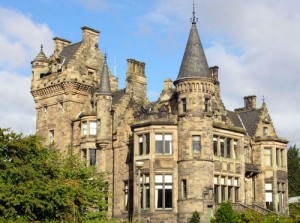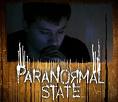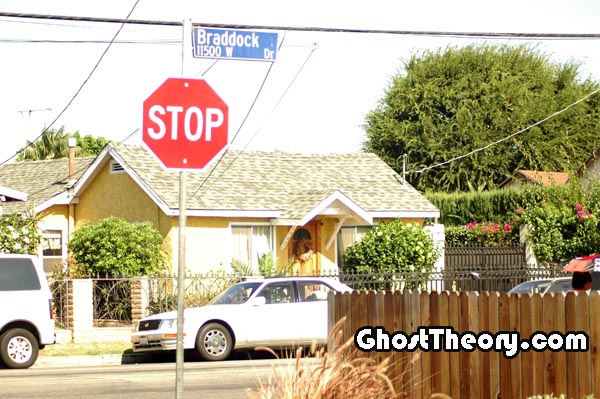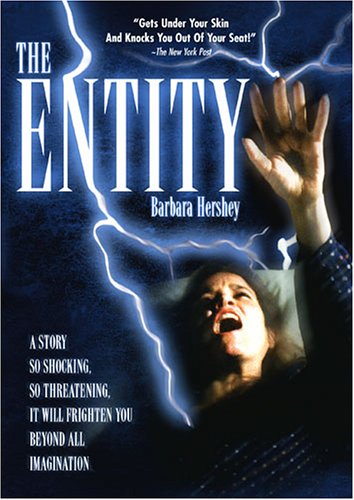
Edinburgh University
“As a clinical psychologist it’s very important to me to understand these phenomena, as the ultimate aim of this research is to provide a counselling service for people coping with unexplained experiences.”
This is what the french clinical psychologist Thomas Rabeyron is trying to achieve in his studies of the paranormal. Something that I believe to be a very progressive manner in which we should be approaching the paranormal. Most people who are paranormal investigators are approaching this subject in a very redundant method. They go out to a supposed haunted place, take their equipment to measure ambience readings, spend countless hours trying to catch an EVP or video proof. Which does not happen.
Even if they were able to catch some form of video proof, we as skeptics will usually spend our time trying to debunk it. Being that technology is so advanced as to allow any person with limited computer skills to create a believable ghost video, there has to be more skeptics out there.
Approaching the paranormal in a scientific method by actually interviewing and analyzing the people who claim to be haunted, in my opinion, will produce far greater benefits as opposed to just electromagnetic readings of a place.
Read this full article about Thomas Rabeyron from The Scotsman:
4 commentsBy MARK McLAUGHLIN
WHILE visiting a friend in hospital, a woman suddenly finds herself transported to a beautiful garden where she is surrounded by friendly people and the sound of happy laughter, in an apparent near-death experience.
A poltergeist takes up residence in a suburban home terrifying the family who move in there, while a man foresees the mortal danger facing his young son just in time to avert a terrible accident.
It all sounds like the stuff of Hollywood psychological horror films – the kind of thing most of us would probably scoff at if we were told it was happening next door.
But these stories do not come from the imagination of a fiction writer, they are real cases which are being investigated at Edinburgh University.Each of these stories has been told, perfectly sincerely, to one researcher based at the famous Koestler Parapsychology Unit in recent months, by people who you would otherwise regard as absolutely “normal”, sane and healthy.
There, French clinical psychologist Thomas Rabeyron, 27, is undertaking a year’s research attempting to trace the roots of paranormal experiences.
During the last six months he’s interviewed more than 160 people from across Edinburgh and the Lothians, hearing their tales of everything from telepathy and psychic healing, to ghosts and alien abductions.
“One of the most striking things to note,” he begins, “is that most of these people are not crazy.
“They genuinely believe that these things have happened to them, are often very traumatised by these experiences and are struggling to understand them.
“As a clinical psychologist it’s very important to me to understand these phenomena, as the ultimate aim of this research is to provide a counselling service for people coping with unexplained experiences.”
Thomas – a sceptic when it comes to belief in an afterlife, although more open minded about unexplained phenomena such as ESP (extra-sensory perception) – is fascinated by how these apparent experiences can defy all regular logic.
Some people who say they have been abducted by aliens display symptoms of post traumatic stress disorder, he points out, and there are many examples of people once seen as incredibly rational who come to believe they are communing with the dead.
“One of the first cases I encountered was a woman with a very firm scientific background,” he explains. “She was an engineer who had never given any consideration to the paranormal until she experienced something like a near-death experience while visiting a friend in hospital. She wasn’t actually near death, but she said she was spontaneously transported to a beautiful garden with a lot of people and laughter all around.
“When the doctors snapped her out of it, she became very angry with them because she was so at peace.
“She didn’t give it much more thought until a couple of years later when a child close to her died. After that, she began reading up on the afterlife and began interpreting her experience as a near-death experience and soon she started to perceive that she was communing with the child from the afterlife.”
Thomas came to attribute the roots of the initial incident to a traumatic hospital experience from the engineer’s childhood, but could find no way to explain how this once rational woman had suddenly started believing she was communing with the dead.
“I was told another story from an engineer here in Edinburgh who said he was walking through a building with his son and they became separated,” he continues. “Suddenly, the man had a very clear vision of his son falling from a great height, so he turned and ran in a very definite direction to find him perched on the edge of a steep drop, exactly where he’d stood in the vision.”
Precognition is one of the most common experiences described to Thomas, alongside spiritual healing, communing with the dead and apparitions.
In addition, around ten per cent of his interviewees claim to have had an out-of-body experience, while a handful say they’ve been abducted by aliens, experienced memories of a past life and even met God during a mystical journey.
He is currently interviewing scores of people who claim to have had paranormal experiences, in an attempt to analyse any character traits which may differentiate them from those who don’t.
His initial findings are leading him to the perhaps unsurprising initial conclusion that most people who believe they have had paranormal experiences have artistic inclinations, rather than making a living in a profession where hard facts and analysis are demanded as a matter of course, like accountants and policemen.
“Many sceptics say that it’s important to separate people from what they would term delusions,” says Thomas, who first took an interest in paranormal experiences while studying for his clinical psychology masters in Lyon. “I have a lot of respect for scientists like Richard Dawkins, whose approach is very logical, but many people who harbour these beliefs actually cope perfectly well in society – and are often happier than some sceptics. It’s not enough to say to them that they’re putting their faith in nonsense as this can often be more traumatic.”
Not all paranormal experiences are comforting, as Thomas discovered during a visit to a very ordinary modern suburban house.
“It was very similar to the Spielberg movie Poltergeist, where this family moved into a new house and started hearing ghostly noises and experiencing things moving around.
“I went to visit them and discovered the woman was going through a very stressful time, wasn’t happy about the move and hated the new house, so I began to attribute the experiences to her own resentment of the move. As she started talking about the poltergeist experiences, though, I heard seven very loud, definite bangs coming from the second floor, as though someone was banging on the ceiling.
“I have to admit I was scared but I couldn’t let it show, so I went to investigate and couldn’t find any rational explanation.
“My theory is that this woman was somehow projecting her resentment and it was manifesting itself in these phenomena.”
Thomas tries to deal in hard scientific fact, but it can be a bit of an elusive commodity in the world he now inhabits.
The Koestler Unit has just secured a £27,000 grant to attempt to investigate poltergeist activity.
It will explore the problem ghost-hunters have repeatedly stumbled across – that poltergeist activity has a nasty habit of disappearing whenever anyone tries to capture it on camera.
Thomas and his colleagues are now trying to identify a suitably poltergeist-plagued home for the test.
“All we know is that in similar experiments, whenever the cameras were around, the occupants were more comfortable and the phenomena came to an end.
“The only explanations for this would be that the occupants were faking it and didn’t want to be caught out, that there was some kind of psychological explanation that was cancelled out by the presence of the cameras, or that the phenomenon was caused by a real poltergeist that didn’t want to be caught on film.”
Thomas is going to continue his interviews and investigations until the middle of next year, and is soon to begin the process of compiling all of his information to put his theories to the test.
He refuses, though, to be drawn on how many of the stories he actually believes.
“Believing in the paranormal is like believing in an object at the other side of a closed door that you cannot see,” he insists. “No matter how many times someone tells you it’s there, you’ll never believe until you have more information.”
If you want to be interviewed as part of Thomas Rabeyron’s paranormal investigations, e-mail your details to [email protected]




